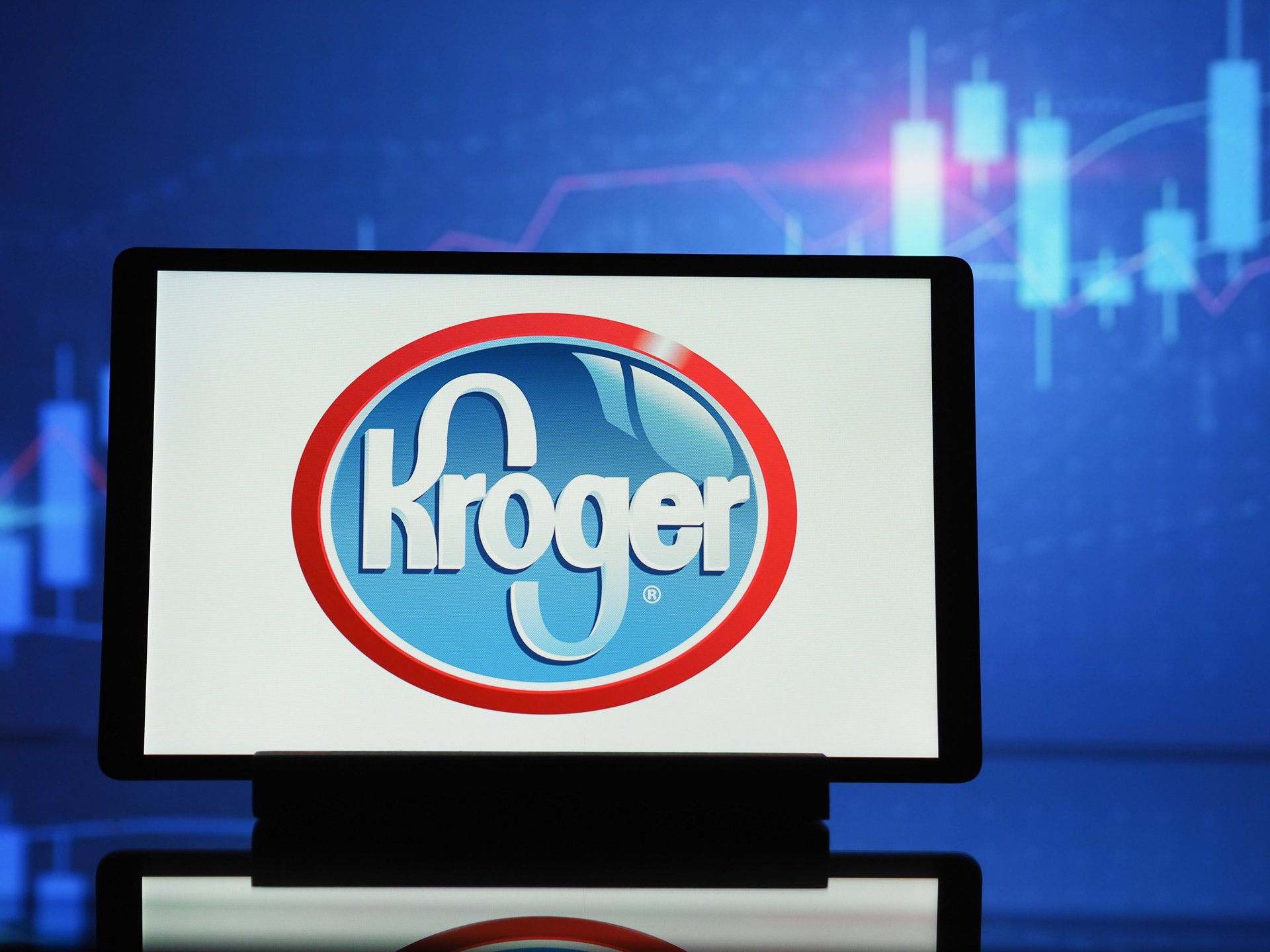Kroger is riding high on loyal grocery shoppers and digital sales
The grocery chain saw an 11% rise in digital sales and a 14% increase in the number of e-commerce households

Kroger (KR) is proving that even in uncertain times, the grocery chain is thriving.
Suggested Reading
Shares of Kroger increased after the grocery giant reported strong second quarter earnings that revealed, despite shaky economic conditions and ongoing regulatory battles, shoppers are still flocking to Kroger for food and essentials.
Related Content
Kroger’s better-than-expected performance was thanks to its strategic store upgrades and expanded online shopping options, which have boosted its foot traffic and average basket sizes. During the quarter, it saw an 11% rise in digital sales and a 14% increase in the number of e-commerce households.
“We are growing households and increasing customer visits by offering a compelling combination of affordable prices and personalized promotions on great quality products,” Kroger CEO Rodeny McMullen said in statement.
Kroger’s financial success comes at a time when it faces big challenges. The company is currently entangled in a high-stakes regulatory fight with the Federal Trade Commission (FTC) over its proposed merger with supermarket chain Albertsons. The FTC has raised concerns about the potential impact of the merger on competition and consumer prices, putting the deal under intense scrutiny.
The deal has even garnered the attention of Vice President Kamala Harris, the country’s Democratic nominee for president, who said that if elected, she would implement corporate ban on price gouging. That’s despite Harris only mentioning grocery prices once during a debate against former U.S. President Donald Trump earlier this week.
Kroger, however, remains optimistic about the merger’s potential to create a more competitive grocery chain that can ultimately led to price cuts, according to McMullen, who argued that by joining forces with Albertsons (ACI) it would be able to “begin lowering prices,” across a broader network of stores.
“As we near the close of the FTC’s preliminary injunction hearing, we are confident in the facts and the strength of our position,” McMullen said. “The food industry has always been competitive and will continue to be after this merger.”
Big retailers like Walmart (WMT) dominate 22% of the grocery market. Should Kroger and Albertsons merge, they would command 13%.
The Ohio-based company reported revenue of $33.91 billion, about $0.93 cents a share, according to FactSet (FDS).